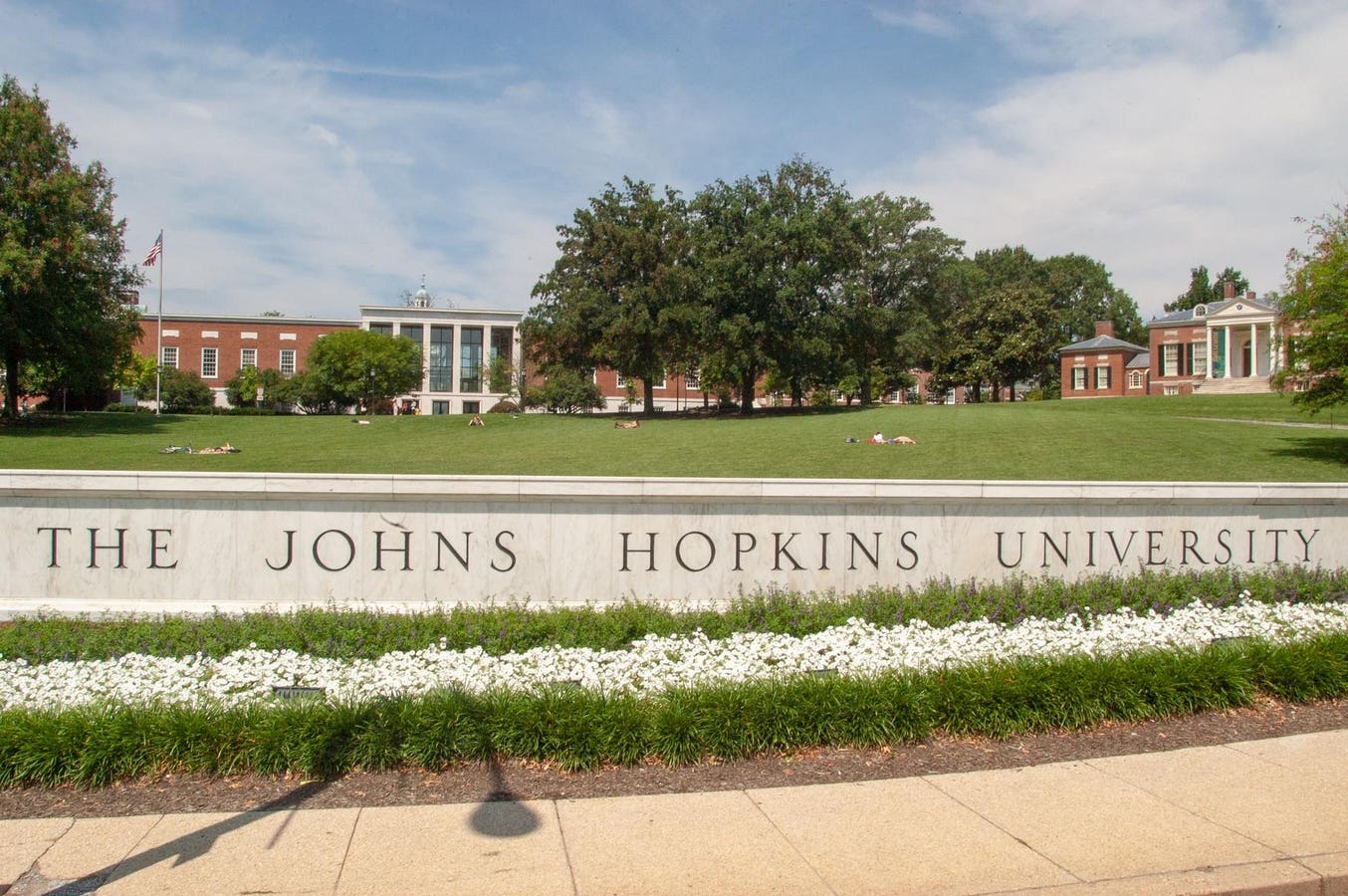Johns Hopkins University will require SAT or ACT scores for undergraduate admission beginning with the 2025-2026 application cycle. In June, Stanford University also reinstated standardized test requirements for the next admissions period.
Johns Hopkins’s reinstatement follows its review of academic research on testing and analysis of the school’s three-year experience of test-optional admissions.
“With input from faculty colleagues, the review concluded that test scores, when considered in context as part of a holistic approach to admissions, serve as an important predictive metric to assess the likelihood of a student’s academic success at Johns Hopkins,” the university stated on its website.
Johns Hopkins University will require applicants to submit standardized test scores in the 2025-2026 … [+]
Many universities adopted a test-optional policy during the pandemic because the global health crisis severely limited access to testing. Some experts have been expecting highly-ranked schools to revert to their original, pre-pandemic testing statuses.
“The reinstatement of standardized testing at Johns Hopkins comes as no surprise, as selective schools are seeing compelling data from their recent test-optional classes reinforcing the value of standardized testing, more so than high school GPA, in predicting undergraduate success,” says Hafeez Lakhani, founder of Lakhani Coaching.
Indeed, Stanford University’s website notes, “Performance on standardized tests is an important predictor of academic performance at Stanford, a review by the faculty Committee on Undergraduate Admission and Financial Aid has confirmed.”
These decisions come after testing reinstatements announced earlier by selective schools such as Harvard, Brown and Dartmouth that apply to the current application cycle.
Some experts believe more highly-ranked universities will go back to requiring standardized tests as an assessment metric, especially as selective schools experience record-high application volume alongside record-low acceptance rates.
“I expect to see more announcements, especially from (the top 50) colleges and universities,” says Connie Livingston, Head of College Counselors at Empowerly.
While she sees test reinstatements as valuable in predicting a student’s potential for success on campus, “there’s no doubt that application numbers skyrocketed to selective schools after the elimination of testing requirements, and no doubt the application volume has placed additional pressures on already short-staffed admission offices,” Livingston says.
Despite reinstatements in selective schools, 80 percent of four-year colleges are test-optional, according to estimates. Universities eager to minimize application barriers will keep those policies intact.
“Less selective colleges are unlikely to reinstate standardized testing, as research shows that ‘test optional’ correlates strongly with higher application numbers,” says Lakhani. “Rather, less selective universities will continue to cherry-pick candidates who voluntarily submit strong standardized testing for merit scholarships.”
In addition, lower-ranked colleges are currently struggling to maintain enrollments, especially in the face of the so-called “enrollment cliff,” a demographic decline stemming from a birth rate drop following the 2008 global recession.
“There’s always been a divide between these highly sought-after colleges and colleges struggling with enrollment, and I don’t expect that divide to widen or lessen as a result of testing policies,” says Empowerly’s Livingston.
“The schools with reinstated testing requirements may see a very minimal decline in applications,” potentially well below 5%, Livingston says. She expects that applicants who are dissuaded by the requirements will choose another route while still aiming for competitive schools.
“Those applicants will apply to schools that are either test-optional or have lower admitted student test averages,” she says, but adds, “these schools will not be the ones struggling for enrollments.”
